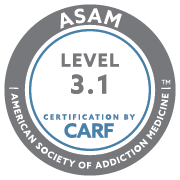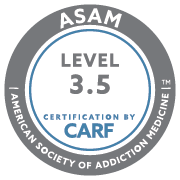Valentine’s Day is approaching, and love is in the air! Many will be taking this time to begin new relationships, or will reflect on their current relationships and celebrate their years spent in them. No matter where one stands on Valentine’s Day, we are all part of all kinds of relationships in our lives. Whether or not we are in an intimate relationship with a partner, we are also have friendships, families, and work acquaintances that we interact in daily. Some of those relationships are more valuable than others, some are out of obligation or convenience. No matter the type of relationship, it is important that they are healthy to everyone involved. When a relationship is healthy, all participants feel nurtured and safe in some way.
Rimrock values relationships, and we want to share some key characteristics of a healthy relationship with you. If there are areas that can improve, consider communicating these to those you are in relationship with and grow together. We are here to help, if you have questions or need guidance in a relationship, contact us.
Characteristics of a Healthy Relationship
We have gone through so much of our lives making assumptions or guessing about what is normal or what is appropriate in relationships. Many addicts grew up in family systems with unhealthy models or relationships. Because of the lack of healthy models, some people are often still operating in a vacuum – not knowing how to interact with those they care about. The following are characteristics that offer a healthier framework.
Respect
Respect is an attitude for which courtesy is an expression. “My respect is an acceptance of who you are”.
Honesty
Honesty and open communications mean that people are free to be themselves. “I have given up fear of rejection when I am less than perfect, when I am vulnerable, when it may mean you disagree with me. I can tell you my feelings, my thoughts, without fear of a major catastrophe.”
Realistic Expectations
We need to be realistic about what we can offer another and what they can offer us. A history of growing up with blurred boundaries, unrealistic expectations placed on us, or even magical thinking on our part, can cause us to have very unrealistic expectations of others and ourselves. Be aware that the other person is not going to be available to meet all of your needs. Nor should he or she. You are responsible for many of your needs, while different people together (friends, family and partner) meet varying interpersonal needs. Be cautious of someone trying to meet all of your needs at all times. It is likely that person is very fearful of rejection, often won’t take responsibility for themselves, and hasn’t developed a sense of self.
Trust
Trust means “I feel psychologically and physically safe with you. I have neither fears nor anxieties with respect to your treatment of me.” For there to be trust, there needs to be consistency, predictability, and demonstrated reliability that he or she follows through with their intentions. Trust is like a brick wall. It takes time to build and develop.
Autonomy
Intimacy is a sharing of autonomy. Real autonomy means each of us taking full responsibility for our own lives, for evolving into the best human being we can be. We are the fulfillers of our own life scripts and the exercisers of our own physical, emotional, and spiritual energies. With autonomy, we have the ability to be clear about our own needs, while being respectful to the boundaries and limits of others as well as ourselves. We are also able to honor the other person in his or her differences.
People need to be cautious, as autonomy sometimes passes for unbridled, unmitigated selfishness. “I don’t care about the rest of the world, I am going to get what I want when I want it because I am entitled to do what I please.” That is not true. No one is entitled to get what they wants when they wants it from anyone. That is selfish and greedy.
While a healthy relationship is not a power struggle between two rigidly autonomous beings, neither should it be symbiotic (when both feed off of one another for identity). The two of you do not have to think and feel the same way about all things. We want to share ourselves without collapsing into one being. A healthy relationship is autonomy that grows in strength when shared.
Shared Power
A healthy relationship is about shared power, not control. Both people in the relationship are able to take initiative and to respond. They are able to stand side by side. There is a mutual give and take. We relinquish the need to be right. We eliminate the idea of ownership. There is mutuality and reciprocity (give and take) in the relationship.
The notion of shared power with children is often a problem for parents. However, when children feel powerless, there are usually very negative consequences for both parents and children. While parents do need to operate from a position of authority, and are responsible for providing healthy structure and boundaries, they can, nonetheless, offer children age-appropriate areas of mutual power sharing.
Tenderness
Tenderness is demonstrated with physical affection. This is the kind of nonsexual physical touching we all need to thrive. There is nurturing touch that says “I am here, you are not alone.” “I offer my support.”
Tenderness is also expressed in words and attitude. After being with people for long periods of time, it is easy to let go of the little niceties we offer to those we don’t know as well. It is easy over time to take our partners, our parents, and even our friends for granted.
Time
Relationships need time. When 150 couples in committed relationships (living together for over four years) were asked how much time they spent with their partner each day, the average was twenty-three minutes. Twenty-three minutes with the person each considered the most important to his or her own life! People grow apart for many reasons, but for some it is as simple as getting caught up in other responsibilities and not taking the time to “be” in a relationship. Valued relationships need time.
Long-term Commitment
To have a healthy relationship, we need to pay attention to the relationship’s dynamics and make a commitment to working on our part. We trust that if there are problems in our relationship, the two of us will work them out. We trust that when there are problems, it does not mean the relationship is over.
Commitment does not mean you stay in a relationship irrespective of what may occur. At times, as people change, relationships are renegotiated and commitments are reinforced or lessened. But, when we make a commitment, we do what we can to make the relationship work; we do not allow ourselves to be abused, nor do we give up our integrity in the process.
Forgiveness
There has to be room for forgiveness in any relationship. Forgiveness does not mean selling your heart, soul, or integrity to have peace. It means remembering and letting go. It is a cleansing of your pain and anger. It means maintaining your integrity while being able to let go.









